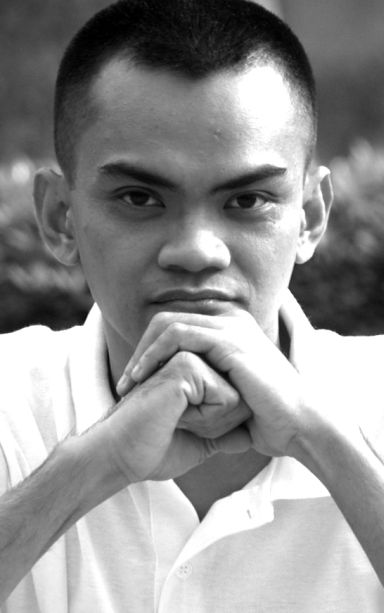
PAREDES
It was sometime during the first weeks of the war in Marawi when I talked about it with my cousin, who had spent some time in the Islamic city as part of his tour of duty when he was still an active member of the Philippine Army. He is now retired and has since been living with his family in his farm in Mindanao. But he always looks back to his life in the service, which he describes as “very colorful.”
My cousin stayed in our house in Surigao City when he went to college, so we grew up looking up to him as some kind of a big brother. My own father was in the military at that time and my brothers and I often played with his pistols when he was not around. Our cousin would always be terrified seeing us with my father’s guns even if they were not loaded.
So it came as a surprise to us when we learned later that he would join the army after a short stint of working in a mining company. We were already in college, away from home, when we heard about this and, of course, it made us proud and a bit envious of him. Now, it was he who would always have guns with him. Meanwhile, my brothers and I were on the other side of the fence, having joined the militant left. So, while we were protesting against militarization and the fascist tendencies of the state, our cousin was just becoming part of its repressive apparatus.
But actually, we didn’t hear much about our cousin at that time. The only time we did was when he got involved in a military coup against president Cory Aquino. He was new in the army so when his commanding officer told them that they had to immediately go to Manila for an assignment, he just obeyed without asking questions.
In Manila, they were shocked to find themselves positioned among the “rebels” under Gringo Honasan who were trying to oust Cory Aquino. My cousin did not like how their leaders took advantage of them; he had nothing against the government. In fact, he was grateful to have found a job being a soldier. In the middle of fighting, my cousin managed to escape and went back to Mindanao to rejoin the troops loyal to the government.
I never had a chance to talk to my cousin about his experience in the military until recently when we met again in Surigao. Without any hint of trauma, he told us about how they had gotten used to the stress of combat, fighting mostly Moro separatists and terrorists in Southern Mindanao.
Among his hardest assignments, he recalled, was how they fought the members of the Moro Islamic Liberation Front (MILF) right in their stronghold in Camp Abubakar when president Joseph Estrada waged total war against them. After weeks of fighting, they were finally able to raise the Philippine flag amid the bombed-out trenches and bunkers in Abubakar.
My cousin also recalled fighting the Abu Sayyaf terrorists in Basilan and Sulu and members of the Bangsamoro Islamic Freedom Fighters (BIFF) in Maguindanao and Lanao provinces. And in those assignments, they were often joined by “integrees” or former members of the Moro National Liberation Front (MNLF) who had surrendered and had been absorbed into the Armed Forces of the Philippines (AFP) as regular soldiers.
Assigned once to lead a group of these Moro integrees, my cousin described them as lacking discipline. “They always try to stick together as a group and find every excuse to take a leave,” he said. “But they were the fiercest fighters who would really fight to the death. They don’t seem to be afraid of bullets.” And although these Moro integrees were hard to tame, he never questioned their loyalty to the government.
My cousin never forgets his assignment in Marawi, where they always faced threats from various groups including the one led by the Maute brothers, which was already in existence when he was assigned there. He also confirmed that drugs were already widespread in Marawi City back then, infecting even some members of the military. Local politicians even tried to bribe them with offers of shabu. It was not easy, he said, to walk the streets thinking that anytime somebody could just shoot you or throw grenade at your jeep while you were just trying to buy vegetables at the public market.
He and his comrades in the army would never dare travel outside of Marawi City alone. A lot of Moros never appreciated men in uniform at that time, and it could be very risky for soldiers to be traveling or just wandering around the city alone in that place where owning guns is a symbol of status. Soldiers would always go down from Marawi to Iligan in a convoy of trucks and armored personnel carriers.
Looking at the current war in Marawi, my cousin is not impressed by the new M4 carbines and light machine guns of smaller caliber issued to soldiers. He still preferred the Vietnam War vintage rifles like the M16 and M14, which are great for sniping and shooting at long distances, and the Rambo-style M60 machine gun which had a more powerful punch.
But it’s not the weapons that would win the war, he admits. It’s really how the government could win the hearts and minds of the people that will bring about lasting peace, he said. And for that, my cousin, who had burnt out too early in combat, was skeptical when we talked about the war in Marawi when it was still starting. I wonder if he still feels that way now that government troops are about to declare victory after months of fighting.